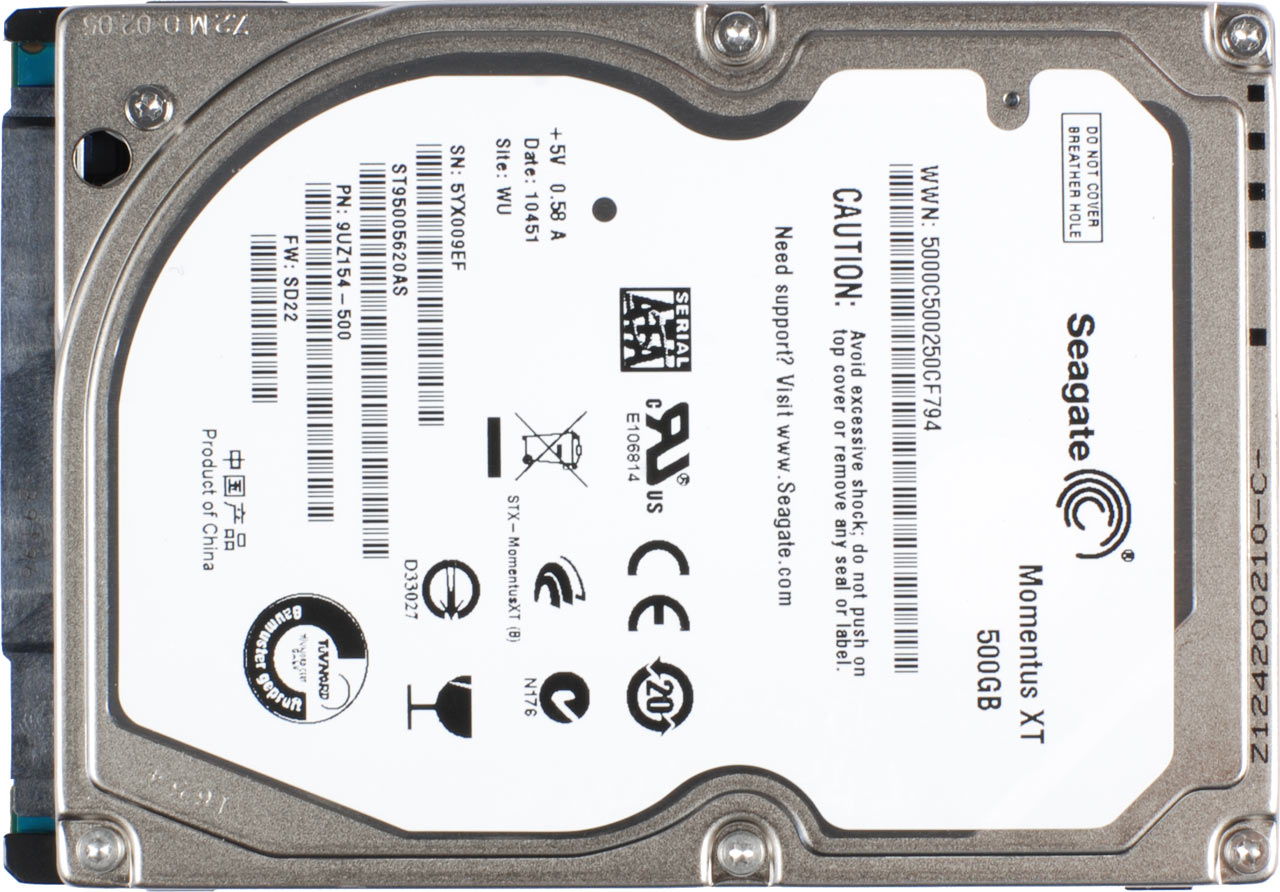Momentus XT Review: Seagate's Marriage Of The HDD And Flash Memory
Update: with more real-world testing under our belts, Seagate's Momentus XT is receiving our rare Best of Tom's award for excellent performance. This new hybrid hard drive combines up to 500GB of storage and 4GB of flash memory to maximize performance.
Adaptive Memory Technology
Seagate had to develop new software/management algorithms for the hard drive that can take advantage of the additional 4GB flash memory. The datasheet mentions SLC NAND flash memory, which tells us that the flash portion should be very suitable for heavy I/O operation, as well as strong on both read and write operations. Unfortunately, the datasheet does not tell us how the flash memory is organized. Most flash SSDs reach 200+ MB/s throughput by combining multiple flash memory channels. This is certainly not the case on the Momentus XT, but we don’t have specific information.
The technology working inside the Momentus XT is called Adaptive Memory. According to Seagate, it monitors activity and gathers so-called hot data within the fast 4GB flash memory. You could say that it works like a cache, but the contents won’t be lost in the case of a power failure. Frequently used files, user data, and operating system files should technically all be located within the flash memory section to be instantly available. However, we found that a technology that operates so dynamically to be difficult to measure and benchmark. We had a similar situation with Adaptec’s MaxIQ solution that utilizes an SSD to cache an entire RAID array. Therefore let’s look at what Adaptive Memory does.
Seagate mentions ‘constant monitoring’ performed by the drive controller to ‘customize system performance for the user.' So far, our performance numbers only reflect low-level performance, but it’s hard to come up with robust testing that really exposes the impact of this feature. Yet, the Momentus XT beats the competition in most low-level benchmarks without getting anywhere near the performance we came to appreciate on flash SSDs.
There are many benchmarks where the drive is faster than its 7,200 RPM competition in the 2.5” hard drive space, but typically the drive doesn’t really outperform them by a wide margin. And there are a few benchmarks where it is even slower than the competitors. At this point, I have to admit that I expected a few performance spikes here and there, providing visible proof of concept for the Momentus XT and Adaptive Memory. Apparently, these either do not exist or our benchmarks are simply incapable of showing the performance improvements that we were expecting to materialize over time.
Be that as it may, expectations should clearly be based on the fact that the drive is not a flash SSD. Rather, it is a Momentus hard drive with the XT suffix. In this context, its performance is just about right--and on top of the competition. We’ll keep testing with a second Momentus XT and will analyze the inner workings of Adaptive Memory Technology with any more information we can glean from Seagate. I’m sure there is more to come, as only a firmware update could introduce additional performance in the blink of an eye.
Get Tom's Hardware's best news and in-depth reviews, straight to your inbox.
Current page: Adaptive Memory Technology
Prev Page HDD + Flash = Seagate Momentus XT Next Page Update: Everyday Performance